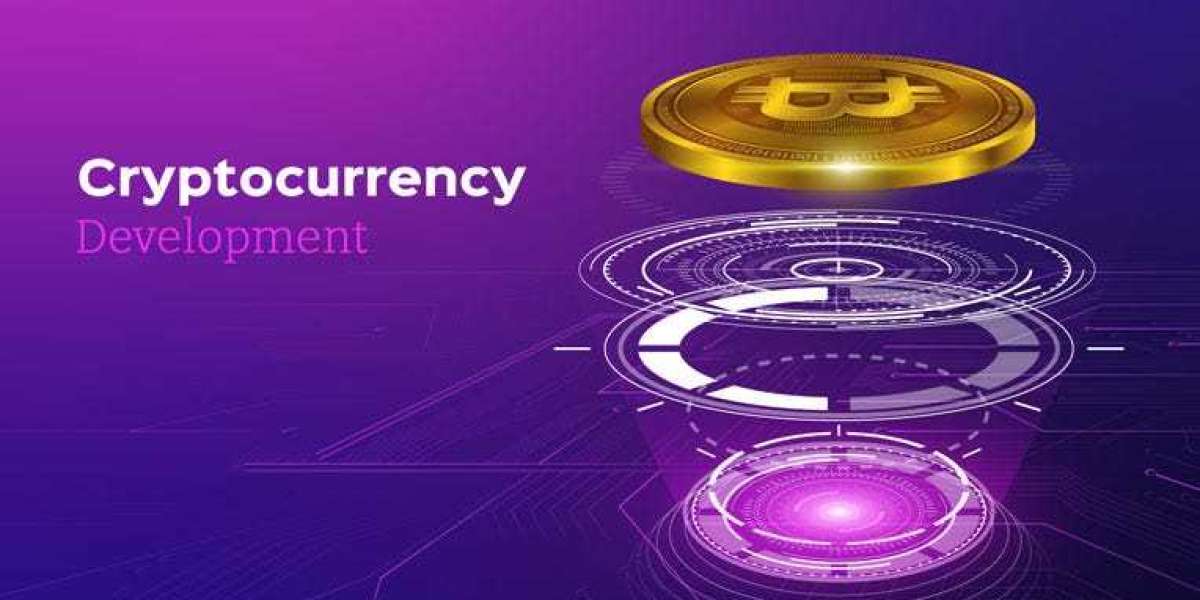In the ever-evolving world of blockchain and cryptocurrencies, building a successful crypto project requires more than just a great idea. It demands a highly skilled, experienced, and reliable crypto development team capable of transforming your vision into a secure and scalable product. Whether you're developing a decentralized finance (DeFi) platform, launching a crypto token, or creating a Web3 game, your development team serves as the backbone of your success.
As the market becomes more saturated in 2025, competition is fierce, and users expect flawless performance. Therefore, hiring the right developers individuals or agencies is one of the most critical decisions you will make. This blog provides a comprehensive guide to help you hire the best crypto development team for your project's unique needs.
Define Your Project Requirements Clearly
Before approaching any developers or agencies, it's essential to clearly define your project scope, goals, and expectations. This ensures you know what skills are needed and helps the potential team understand your requirements better.
Start by answering the following:
What is the core idea of your project?
Is it a DeFi app, crypto wallet, NFT marketplace, exchange, or something else?
What blockchain will you use — Ethereum, Solana, Polygon, etc.?
Will you need a front-end interface, back-end infrastructure, and smart contracts?
What is your expected launch timeline?
The more detailed your project documentation, the easier it becomes to assess the right talent for the job.
Understand the Roles in a Crypto Development Team
Crypto development involves a mix of skills, and your ideal team should include a blend of technical, strategic, and creative professionals. Here's a breakdown of typical roles:
Blockchain Developers: Responsible for building the core decentralized architecture and integrating it with smart contracts.
Smart Contract Developers: Experts in Solidity, Vyper, or Rust for developing, testing, and deploying smart contracts.
Frontend Developers: Build the user interface (UI/UX) using frameworks like React, Vue, or Svelte.
Backend Developers: Handle server-side logic, APIs, databases, and security integrations.
DevOps Engineers: Ensure deployment pipelines, node maintenance, and continuous integration.
UI/UX Designers: Focus on the user journey, making the dApp intuitive and attractive.
Project Managers: Coordinate between teams, manage deliverables, and ensure milestones are met.
Depending on your budget and timeline, you may need a full team or just a few specialized roles.
Choose Between In-House, Freelancers, or Development Agencies
When hiring a crypto development team, you’ll face three main options: in-house teams, freelancers, or blockchain development agencies. Each has pros and cons.
In-House Team:
Pros: Full control, long-term commitment, tailored culture fit.
Cons: Time-consuming hiring process, higher operational costs.
Freelancers:
Pros: Cost-effective, flexible, suitable for short-term tasks.
Cons: Lack of accountability, potential communication issues, varied skill levels.
Agencies:
Pros: Full-stack services, proven track records, quicker ramp-up time, project management included.
Cons: May be more expensive than freelancers, less control than in-house teams.
For most startups and growing projects, crypto development agencies offer the best balance between speed, skill, and scalability — especially if you're aiming for rapid MVP development or token launches.
Vet the Technical Expertise Thoroughly
The crypto space is highly technical. You need a team that not only understands blockchain fundamentals but also keeps up with emerging protocols, Layer-2 solutions, cross-chain bridges, and smart contract security.
When vetting candidates or firms:
Ask about their experience with EVM-compatible chains (Ethereum, BNB, Polygon).
Inquire about knowledge of newer chains (Solana, Avalanche, Aptos, Sui, etc.).
Ensure they have experience writing secure and audited smart contracts.
Test their proficiency in Solidity, Rust, Move, and smart contract frameworks like Hardhat, Truffle, Anchor, or Foundry.
Assess their familiarity with front-end libraries like Ethers.js, Wagmi, and wallet integrations like MetaMask, WalletConnect, or RainbowKit.
Request technical assessments or code samples. If you're hiring an agency, ask for case studies, GitHub links, and demo walkthroughs of past projects.
Prioritize Experience with Security Best Practices
Security is non-negotiable in crypto development. A single vulnerability can lead to millions in losses and irreparable damage to your reputation.
Ensure your team:
Is familiar with common attack vectors like reentrancy, flash loan exploits, front-running, and contract upgrade loopholes.
Performs rigorous unit testing and integration testing.
Uses automated security tools like Slither, MythX, or Tenderly.
Has experience working with third-party auditors like Certik, Hacken, or OpenZeppelin.
Implements multisig wallets, role-based access control, and time locks for administrative functions.
Don’t settle for developers who “will look into security later.” Make it a top hiring criterion.
Look for a Strong Web3 Portfolio
Experience matters. A seasoned team brings not just technical skills but also domain knowledge, such as how gas fees behave under load, how to prevent MEV attacks, or how to optimize smart contracts for gas efficiency.
Look for:
Successful launches of tokens, wallets, NFT marketplaces, or exchanges.
Participation in hackathons, open-source projects, or community development.
Client testimonials and long-term partnerships.
Contributions to GitHub, NPM packages, or Web3 libraries.
A Web3-native team is more likely to think from a decentralized perspective and offer future-ready solutions.
Evaluate Communication, Collaboration Transparency
The crypto industry is global, which means your developers could be in different time zones. You need a team that communicates clearly, documents processes, and is responsive to changes.
Look for:
Weekly or bi-weekly standups and milestone reviews.
Tools like Jira, Trello, Notion, or GitHub Projects for task management.
Clear documentation for contracts, APIs, and user flows.
Transparency in code ownership and smart contract deployment.
Avoid teams that are vague about deadlines, use confusing terminology, or don't explain architecture decisions.
Understand Their Development Process Methodology
Ask how the team approaches:
Discovery Phase – Gathering requirements, analyzing use cases.
Architecture Planning – Defining smart contract architecture, front-backend integration.
Design Sprints – UI/UX mockups and wireframes.
Development Cycles – Agile or Scrum-based delivery models.
Testing QA – Manual and automated testing, testnets, bug fixing.
Security Audits – Internal and third-party.
Deployment Support – Mainnet deployment, post-launch updates, monitoring.
A clear and well-documented process ensures faster delivery and fewer post-launch issues.
Consider Legal Compliance and Token Standards
In 2025, crypto regulations are tightening. Your development team must understand:
KYC/AML integrations for DeFi or exchanges.
Token compliance with ERC-20, ERC-721, ERC-1155, BEP-20, etc.
How to develop whitelisted smart contracts, timelocks, vesting schedules.
Jurisdictional limitations for ICOs, STOs, or IDOs.
Teams with compliance experience can help avoid legal hurdles and ensure your project is launch-ready from a regulatory perspective.
Ensure Post-Launch Maintenance Support
The launch is just the beginning. Choose a team that provides ongoing support, such as:
Smart contract upgrades and proxy patterns.
Emergency fixes for security vulnerabilities.
Performance tuning for traffic spikes.
Support for chain migrations or forks.
Wallet compatibility updates.
Post-launch support can make or break your user experience and adoption curve.
Compare Cost vs. Value
Pricing will vary based on the experience, team size, and region. However, don’t choose based on the cheapest quote.
Instead, compare:
Code quality and security focus
Time-to-market and delivery speed
Ownership of code and IP
Scalability of the team for long-term engagement
Sometimes paying more for a better-equipped team will save you months of rework or security issues.
Ask the Right Interview Questions
Here are some questions to ask during interviews:
Can you walk me through a recent crypto project you worked on?
How do you ensure smart contract security?
Which blockchain do you recommend for my use case and why?
How do you handle wallet integrations and token bridges?
Have you integrated DeFi protocols, NFT minting, or DAO governance?
What is your process for audits and testing?
What happens if there is a post-launch bug?
Evaluate not just their answers, but how confidently and clearly they respond.
Use Trusted Platforms and Networks
To find quality crypto development teams, consider:
Clutch, GoodFirms, Toptal, Upwork – Verified client reviews
LinkedIn, AngelList, CryptoJobs, Remote3
Telegram groups, Discord communities, Hackathons
Referrals from advisors, incubators, or VCs
Always verify credentials, conduct interviews, and run technical tests before signing contracts.
Create Clear Contracts and NDAs
Once you’ve chosen your team:
Create detailed contracts with scope, milestones, and payment terms.
Sign Non-Disclosure Agreements (NDAs) to protect your idea.
Establish code ownership and Git access protocols.
Use smart contract escrow services for milestone payments, if needed.
Protect your project legally and structurally.
Build Long-Term Relationships, Not Just Code
The best crypto projects are supported by long-term developer relationships. If your developers understand your vision, product, and users deeply, they’ll help you evolve faster.
Invest in:
Developer onboarding to your business goals
Transparent communication and feedback
Incentives like equity, token allocations, or performance bonuses
A strong team culture will attract better talent and help you scale your project with confidence.
Conclusion
Hiring the best crypto development team is not about finding coders — it’s about finding strategic partners who can guide your project through the complex world of Web3, DeFi, tokenomics, compliance, and user experience. In 2025, with new protocols emerging and regulatory landscapes shifting, you need a team that can adapt, innovate, and deliver securely.








